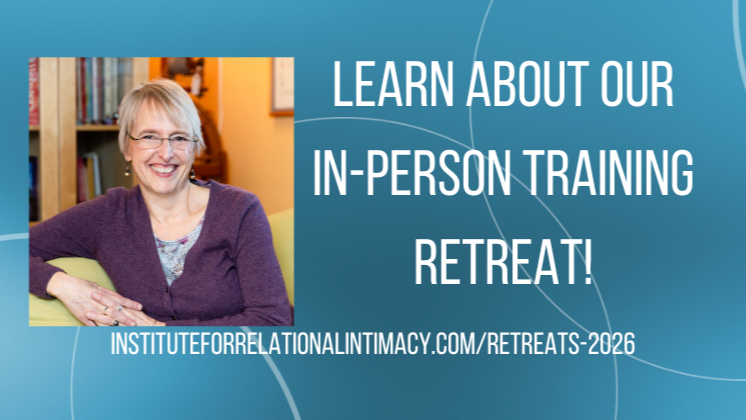New Relationship Energy: Polyamory’s Double-Edged Sword
Dec 13, 2021
New relationship energy is a powerful feeling.
New love is magical if you’re the person experiencing it. For the other people around—the people who have to sit patiently while you text your new boo under the table, who’ve had lunch plans canceled five times in a row in favor of an impulse date, who’ve sat through the millionth “do you think she likes me as much as I like her” conversation in a day—it might not be quite so charming.
That’s the double-edged sword of what people in the polyamory community call “new relationship energy.” There’s nothing wrong with new relationship energy in itself. One of the amazing things about polyamory is that it allows people to experience all the magic of new love without destroying a long-term, stable relationship in the process. When it works, it’s a beautiful alternative to serial monogamy and infidelity.
That said, it’s not uncommon for people to mismanage new relationship energy (or NRE) significantly enough that they sour their original partner on polyamory. NRE is one of the most powerful emotional experiences in the world—and, therefore, one of the most challenging to manage effectively. Basically, in the throes of NRE, many people turn right back into hormone-addled teenagers—with all the accompanying mood swings, rebellion, and bad attitude—if they’re not careful.
That doesn’t mean you or your partners are doomed to hurt each other. It’s totally possible to manage NRE effectively, and the first step is simply being aware of the phenomenon. NRE happens; it’s a normal and predictable response to a new relationship. It also fades with time because it’s very expensive metabolically for your body to keep producing the chemicals that maintain the NRE state of mind.
Knowing that NRE will happen and that it’s not going to last forever might help you plan for how you want to conduct yourself when new love sweeps you off your feet.
Managing NRE effectively is all about keeping perspective:
- Look to the future. Part of the reason people behave so badly during NRE is because they get swept away and lose sight of their long-term relationship goals. Knowing that NRE will fade away with time, ask yourself: how do I want to look back on this period in my life and my relationship (and by this, I mean the ORIGINAL relationship)? How can I conduct myself now to make myself proud of myself in the future? What might make me feel embarrassed or disappointed in myself later? What kind of partner do I want to be in this situation, and what can I do to get there?
- Resist the emergency mindset. NRE makes it feel like seeing your new crush is the most important thing in the world. It isn’t. Resist the urge to break plans to see them, sneak around to get more time, or tune out of your interactions with other people to daydream about them. When you feel a bit shaky, remember what you decided in point one about what kind of person and partner you want to be.
- Make time for special moments with your other partner(s). It can be easy for a longer-standing partner to feel like they’re old news compared to the exciting new crush—especially if they’re getting stuck with all the “boring life stuff” while you go on romantic adventures with your new squeeze. Make sure that you show your appreciation in whatever way makes your partner(s) feel most special, and give them your full attention when you’re together—no texting under the table.
- Don’t try to please all the people, all the time. This is an issue I see with NRE, particularly in people who tend a bit toward the people-pleasing or conflict-avoidant side of things. When you’ve got a new person who wants lots of your time and another partner or couple of partners who might be feeling a little insecure and jealous, it can be tempting to run back and forth, showering everyone with love and trying not to disappoint anyone. This is a surefire way to wear yourself out completely, and I can promise you right now that you’re not going to meet your goal of never disappointing anyone ever. The truth is, if you have multiple people who all want a piece of your time, you’re going to have to say “no” to some of them, at least some of the time.
Rather than pleasing everyone 24/7, strive to be straightforward, open, and consistent. It might lead to some disappointment at the moment, but it will build trust and respect in the long term.
- If one of your partners gets swept away by someone new, how will you want them to treat you? If you’ve set a precedent for being self-absorbed, breaking agreements, and generally acting rude, don’t be surprised if your partner follows your example! Remember that, soon enough, the shoe may well be on the other foot.
- Spread the love. There are some real potential upsides to NRE: the zest, joie de vivre, and lust for life that it brings can cross over from your new squeeze to all your relationships. Is NRE bringing out a playful, adventurous side in you? Increasing your libido? Making you feel sexier and more confident? Maybe you can bring some energy to your longer-standing relationship(s).
Although I’ve focused on the pitfalls of NRE in this article, I want to end on a more positive note. The opportunity to experience new love while maintaining long-term connection(s) is a very lovely aspect of polyamory. Enjoy it! As long as you can keep your long-term goals in mind and stay gracious, thoughtful, and connected with all your partners, this can be a truly magical experience.
Photo by Thought Catalog via Unsplash. This article was originally posted on Psychology Today.






